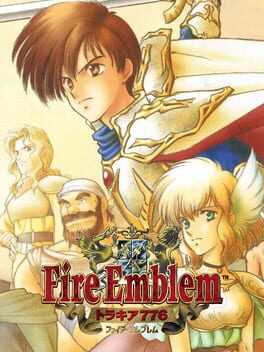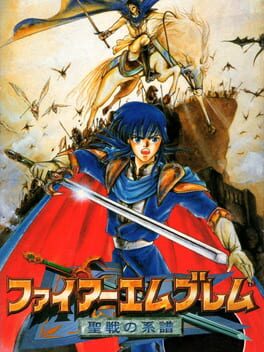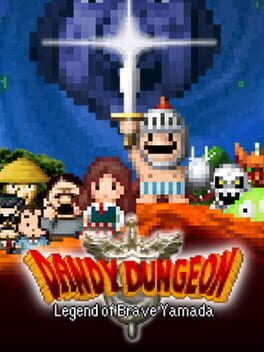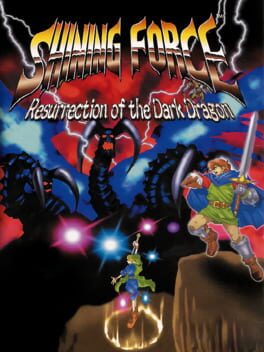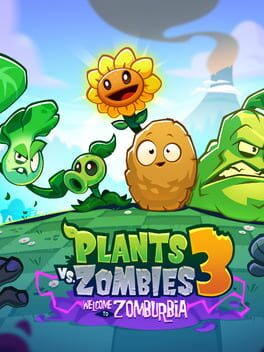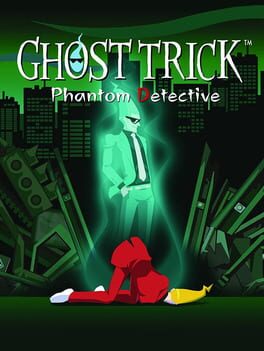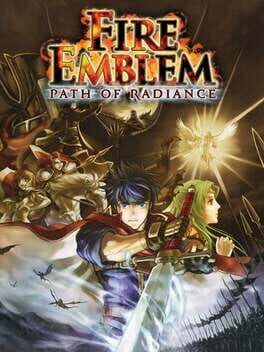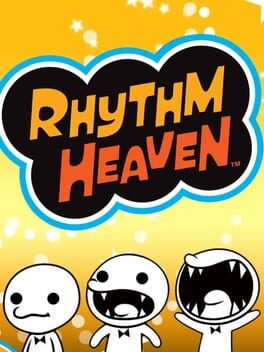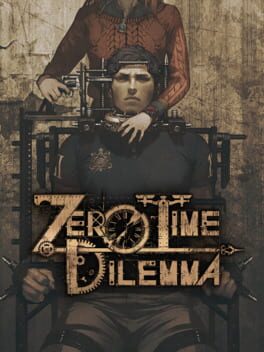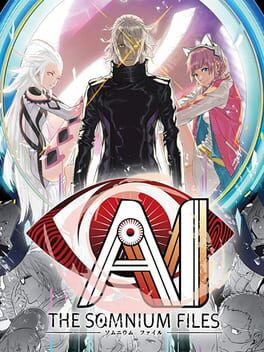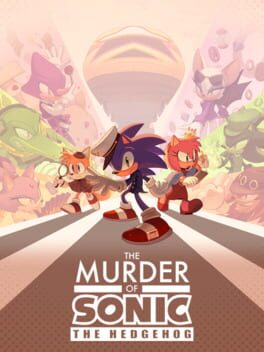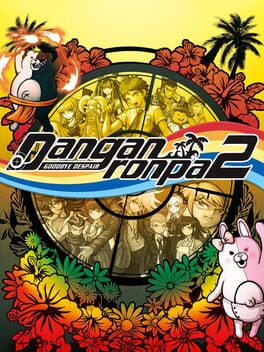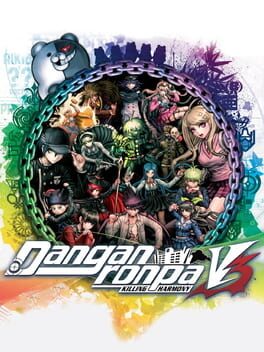skylights
2022
This game has one of my favorite stories in all of media. The vast, sprawling narrative coupled with strong thematic writing that encompasses the entire game makes it a joy to play through, picking up bits and pieces of Live A Live's message until the penultimate chapter flips it on its head, making for one hell of a surprise and perfectly paving the way for the final chapter. Live A Live's central feature, that being playing through multiple time periods, also lend themselves to Live A Live's storytelling, as in retrospect, seeing all these disorganized, jumbled facets of the game come together by weaving their arcs and storylines into the game's central theme all make for superb writing. And no matter how many times the game beats you down, tries to make you suffer, or puts our protagonists through unspeakable, manmade horrors, there's always that one faint glimmer of hope that shines through, urging us to continue forward, the world's ideas for us be damned. Just beautiful, overall.
The character balance is dubious at the best of times, and downright laughable at worst. The maps are the definition of slogs. Most characters are really flat and are in desperate need of fleshing out. The gameplay is so obtuse and confusing that you will need a guide in order to not make the game completely incomprehensible to you.
And yet this game's story is so good, so full of ambition, and so well executed that I can't help but forgive these flaws. It's incredible how much was done in the confines of the SNES, and how even with the limited cartridge space of it, this game was able to create such a richly crafted world that is still highly praised even today and how it blows its successors of the GBA era out of the water in terms of its story. It's still got its flaws, however, and this game would greatly appreciate a remake of its own to iron out many of its… quirks, to say the least, but on its own? It stands as a very competent video game, in my humble opinion.
And yet this game's story is so good, so full of ambition, and so well executed that I can't help but forgive these flaws. It's incredible how much was done in the confines of the SNES, and how even with the limited cartridge space of it, this game was able to create such a richly crafted world that is still highly praised even today and how it blows its successors of the GBA era out of the water in terms of its story. It's still got its flaws, however, and this game would greatly appreciate a remake of its own to iron out many of its… quirks, to say the least, but on its own? It stands as a very competent video game, in my humble opinion.
A charming throwback to games of simpler times. The gameplay, while somewhat repetitive at times, is diverse enough to sustain players on both initial and repeat playthroughs, and provides a surprising amount of strategical play behind Dandy Dungeon's quirky, odd atmosphere. The storyline is simple, yet instantly entertaining in no short thanks to the wide variety of eccentric, memorable characters featured in the game, and the plot soon going off the rails in a fantastic fashion. Add in a terrific OST full of bangers, a metric-ton of references to video games, anime, and films, alongside many more mediums of fiction, and great amounts of humor, the final result is Dandy Dungeon. Definitely try this game out if you want a different RPG experience, as it won't disappoint.
When discussing a piece of fiction, I think it's important to consider the scope of it. How large and ambitious of a story it's trying to tell, whether it tries to weave complex, multifaceted characters or simple ones, the exploration of themes (or absence of, in the opposite case), and more. More often than not, the creator's intentions and view for their stories are directly reflected in the scope, and it sets a metric for what kind of criticism and praise to give it. I'm not going to bash Bloons TD5 for passing up on the opportunity to create deep, complex plots because that isn't within what it developed with in mind, but I can criticize something like, say, Stephen King's Duma Key for failing to follow up on its supposed themes of recovering from your trauma and learning to forgive yourself, because those are very much real themes that are woefully underdeveloped in the book for no real reason.
Though on the other hand, this doesn't mean that something is immune to criticism because they don't try to push their boundaries. Contrary to what I previously implied, these works of fiction can also be put under fair scrutiny if they don't try to do anything interesting with their settings, or if they're just plain boring to begin with, or if the execution is flawed. Being overambitious and falling flat is something worthy of scorn, sure, but doing nothing with your setting and using the safest, most vanilla tropes and story beats imaginable is no less worse. There's a fine line to walk when analyzing fiction within these parameters in order to cultivate an equal breakdown of it, and it's worth noting when your criticisms of them are believable or not. Execution is key, after all.
Shining Force is something I feel that is quite boring and fails in its execution, even when considering its humble goals.
So… where to begin?
Well, for starters, how about the story? To be frank, it's… pretty generic. Standard fantasy stuff. Guardiana, the good kingdom, is invaded by the other, more antagonistic one, Runefaust, and the hero and his band of merry men investigate the cause behind it and uncover the secrets of the world as they fight through battle through battle. It isn't bad, per se, even if the whole setup is pretty cliche in modern times, I did enjoy the world of Shining Force. The lore behind all the different races and history of the world was enjoyable to dig into, and something I do like is how heavily the headquarters plays a role into discovering it, giving you an incentive to not throw your units at enemies indiscriminately, something that's actually kind of clever. And speaking of the cast, I found them to be decent all around. They aren't the deepest characters ever conceived, but most of them have enough story presence and dialogue to come off as likable and charming for the most part, except for Lowe (please stop talking about food). Shining Force may not have the most deep lore or complex characters in video game history, but for what it does, it does so pretty nicely.
This game isn't known for story, however. It's known for its gameplay. So what do I think about it?
It's kinda ass, to be perfectly honest. And that is a big blow to my enjoyment of this game.
Well, for one, this is an easy game. Enemies usually aren't strong enough to seriously threaten your units, and you're handed an assortment of increasingly strong tools and characters throughout the game. The map design, for the most part, spreads these enemies out in such a way that throwing your strongest units at them will reward you, more often than not, and even when they are put in groups, they are still quite weak and frail. Not helping matters is that the AI is very, very stupid, and will often make moves like ignoring a nearly dead unit to focus on another character, or use physical attacks instead of ranged or magic based attacks when those would be more preferable. It's all to easy to blast through this game without much thought put into it. It gets uninteresting fast, and soon you're going to learn that strategic placement of your units doesn't actually matter that much when you can just put Zylo or Mawlock or a sufficiently leveled Max on the frontlines and watch them shrug off attacks without a care in the world.
Speaking of maps, the quality of them is… not good, to say the least. A lot, and I do mean a lot, have huge gaps of empty space for no particular reason, or uncrossable terrain to artificially stretch a battle's length, or so few enemies altogether that it turns them into glorified walking simulators, and so on. The earlygame maps are really bad in this regard, especially when considering turn limits, as they serve no purpose but to waste your time as you get from Point A to Point B while burning through your turns, creating this sense of fake urgency that I find to be deeply lame. A surprising amount of early chapters have strict time limits, not because they are hard, but because of this artificial difficulty. Battle 2 stands out because the 12 turn limit is far harsher than what it would appear to be at first glance, and only because you are forced to walk around a mountain range and into movement reducing terrain while small squads of 3 to 4 enemies engage you at a time. The midgame and lategame improve on this aspect somewhat, but it still persists even in those sections.
Additionally, the balance of playable characters is wildly unbalanced, to say the least. Units like Zylo, Mawlock, and Domingo are so far above other characters, it gets comical at times, while units like Hans, Bleu, and Alef either fall off very quickly or are just very bad at base. This wouldn't be a problem if said bad units were usable, but a reoccurring problem I've noticed is how much you're discouraged from using a unit beyond their supposed 'use'. Like, Hans is good for the very earlygame portions of the game, but he falls off a cliff soon after, even more so when Diane joins, and using him beyond that feels actively miserable. Tao is in the same boat, where trying to use her after a certain point just feels bad. Amon and Balbaroy are far too weak to make up for their flight and just can't do anything especially noteworthy. I can understand the appeal of using bad units - and I will admit I have indulged in that same feeling in various Fire Emblem games - but there's a big difference between making traditionally bad characters work through lots of effort, and feeling practically unusable after a set amount of time, and Shining Force lands squarely in the latter category for me.
And there's a lot of other small, but noticeable details that make the whole experience feel all that much more clunky for me. Not being able to view what kinds of enemies are on a map, instead having to go into battle to actually view them and then retreating if you want to adjust for them. Inventory management being unnecessarily drawn out just for putting certain stuff in said inventories. Not being able to view enemy stats until after getting a hit on them. Having no way to gauge how safe a battle may be for someone initially. Random status effects just to troll you. The list goes on.
Shining Force: Resurrection of the Dark Dragon is a simple game. It presents to you a simple game, and what you get is a simple SRPG in return. But beneath all that is one that's deeply flawed and really should've been ironed out a bit more, especially for a remake. At least the art's good.
Though on the other hand, this doesn't mean that something is immune to criticism because they don't try to push their boundaries. Contrary to what I previously implied, these works of fiction can also be put under fair scrutiny if they don't try to do anything interesting with their settings, or if they're just plain boring to begin with, or if the execution is flawed. Being overambitious and falling flat is something worthy of scorn, sure, but doing nothing with your setting and using the safest, most vanilla tropes and story beats imaginable is no less worse. There's a fine line to walk when analyzing fiction within these parameters in order to cultivate an equal breakdown of it, and it's worth noting when your criticisms of them are believable or not. Execution is key, after all.
Shining Force is something I feel that is quite boring and fails in its execution, even when considering its humble goals.
So… where to begin?
Well, for starters, how about the story? To be frank, it's… pretty generic. Standard fantasy stuff. Guardiana, the good kingdom, is invaded by the other, more antagonistic one, Runefaust, and the hero and his band of merry men investigate the cause behind it and uncover the secrets of the world as they fight through battle through battle. It isn't bad, per se, even if the whole setup is pretty cliche in modern times, I did enjoy the world of Shining Force. The lore behind all the different races and history of the world was enjoyable to dig into, and something I do like is how heavily the headquarters plays a role into discovering it, giving you an incentive to not throw your units at enemies indiscriminately, something that's actually kind of clever. And speaking of the cast, I found them to be decent all around. They aren't the deepest characters ever conceived, but most of them have enough story presence and dialogue to come off as likable and charming for the most part, except for Lowe (please stop talking about food). Shining Force may not have the most deep lore or complex characters in video game history, but for what it does, it does so pretty nicely.
This game isn't known for story, however. It's known for its gameplay. So what do I think about it?
It's kinda ass, to be perfectly honest. And that is a big blow to my enjoyment of this game.
Well, for one, this is an easy game. Enemies usually aren't strong enough to seriously threaten your units, and you're handed an assortment of increasingly strong tools and characters throughout the game. The map design, for the most part, spreads these enemies out in such a way that throwing your strongest units at them will reward you, more often than not, and even when they are put in groups, they are still quite weak and frail. Not helping matters is that the AI is very, very stupid, and will often make moves like ignoring a nearly dead unit to focus on another character, or use physical attacks instead of ranged or magic based attacks when those would be more preferable. It's all to easy to blast through this game without much thought put into it. It gets uninteresting fast, and soon you're going to learn that strategic placement of your units doesn't actually matter that much when you can just put Zylo or Mawlock or a sufficiently leveled Max on the frontlines and watch them shrug off attacks without a care in the world.
Speaking of maps, the quality of them is… not good, to say the least. A lot, and I do mean a lot, have huge gaps of empty space for no particular reason, or uncrossable terrain to artificially stretch a battle's length, or so few enemies altogether that it turns them into glorified walking simulators, and so on. The earlygame maps are really bad in this regard, especially when considering turn limits, as they serve no purpose but to waste your time as you get from Point A to Point B while burning through your turns, creating this sense of fake urgency that I find to be deeply lame. A surprising amount of early chapters have strict time limits, not because they are hard, but because of this artificial difficulty. Battle 2 stands out because the 12 turn limit is far harsher than what it would appear to be at first glance, and only because you are forced to walk around a mountain range and into movement reducing terrain while small squads of 3 to 4 enemies engage you at a time. The midgame and lategame improve on this aspect somewhat, but it still persists even in those sections.
Additionally, the balance of playable characters is wildly unbalanced, to say the least. Units like Zylo, Mawlock, and Domingo are so far above other characters, it gets comical at times, while units like Hans, Bleu, and Alef either fall off very quickly or are just very bad at base. This wouldn't be a problem if said bad units were usable, but a reoccurring problem I've noticed is how much you're discouraged from using a unit beyond their supposed 'use'. Like, Hans is good for the very earlygame portions of the game, but he falls off a cliff soon after, even more so when Diane joins, and using him beyond that feels actively miserable. Tao is in the same boat, where trying to use her after a certain point just feels bad. Amon and Balbaroy are far too weak to make up for their flight and just can't do anything especially noteworthy. I can understand the appeal of using bad units - and I will admit I have indulged in that same feeling in various Fire Emblem games - but there's a big difference between making traditionally bad characters work through lots of effort, and feeling practically unusable after a set amount of time, and Shining Force lands squarely in the latter category for me.
And there's a lot of other small, but noticeable details that make the whole experience feel all that much more clunky for me. Not being able to view what kinds of enemies are on a map, instead having to go into battle to actually view them and then retreating if you want to adjust for them. Inventory management being unnecessarily drawn out just for putting certain stuff in said inventories. Not being able to view enemy stats until after getting a hit on them. Having no way to gauge how safe a battle may be for someone initially. Random status effects just to troll you. The list goes on.
Shining Force: Resurrection of the Dark Dragon is a simple game. It presents to you a simple game, and what you get is a simple SRPG in return. But beneath all that is one that's deeply flawed and really should've been ironed out a bit more, especially for a remake. At least the art's good.
There's a reason why the Ghost Trick fandom's motto is 'play Ghost Trick', and I agree with the sentiment. Shu Takumi uses his previous experience with the Ace Attorney series in order to create a stunning, complex narrative that spans much more than the simple murder of your player character, Sissel. The plot is far more quicker paced than Takumi's previous works, but the combination of a constant stream of information given by Ghost Trick's characters, the simple yet intriguing dropplings of the game's main mystery, and the jumping from one aspect of a mystery to another is enough to keep the player hooked in. Nearly every character in the game plays an important role in Ghost Trick, and while most characters lack the depth that Ace Attorney has, their quirkiness and ability to charm the player makes up for it.
And of course, the plot twists. Ghost Trick relies heavily on plot twists in order to create its unique story, and fortunately, every one of them hits the mark in that regard. I advise any new players reading this to avoid looking up anything related to Ghost Trick, as the game is best experienced without any prior knowledge of the game.
The puzzles deserve a mention too. While they're not as eye-catching as the story, they're a rather unique kind of puzzle, owing to Ghost Trick's central mechanic, and the way they promote experimentation and quick thinking is something to take note of. At times, they can be somewhat repetitive and irritating (the whole prison segment comes to mind), but it's a minor enough flaw that I can excuse it.
All in all, if you're interested in more of Shu Takumi's works, Ghost Trick is definitely something I recommend. It's very close to being a full 5 stars for me, but there are juuust enough flaws that I can't give it a 5 out of 5, in good conscience.
And of course, the plot twists. Ghost Trick relies heavily on plot twists in order to create its unique story, and fortunately, every one of them hits the mark in that regard. I advise any new players reading this to avoid looking up anything related to Ghost Trick, as the game is best experienced without any prior knowledge of the game.
The puzzles deserve a mention too. While they're not as eye-catching as the story, they're a rather unique kind of puzzle, owing to Ghost Trick's central mechanic, and the way they promote experimentation and quick thinking is something to take note of. At times, they can be somewhat repetitive and irritating (the whole prison segment comes to mind), but it's a minor enough flaw that I can excuse it.
All in all, if you're interested in more of Shu Takumi's works, Ghost Trick is definitely something I recommend. It's very close to being a full 5 stars for me, but there are juuust enough flaws that I can't give it a 5 out of 5, in good conscience.
2008
"It's been a while. Soon your journey will come to an end. When one journey ends… another journey begins.
…Life is like one night's dream. Waking and sleeping… birth and death… Many things appear and vanish… What has vanished appears… You and I are no exception.
Throughout the universe… …everything dies, and is born… Life rolls down the road…
The question is, when you wake from the dream, when will you set out toward another dimension? Will you be able to open the door? …Soon you will reach our final destination… Perhaps we'll meet again, at the side of some road. Goodbye."
…Life is like one night's dream. Waking and sleeping… birth and death… Many things appear and vanish… What has vanished appears… You and I are no exception.
Throughout the universe… …everything dies, and is born… Life rolls down the road…
The question is, when you wake from the dream, when will you set out toward another dimension? Will you be able to open the door? …Soon you will reach our final destination… Perhaps we'll meet again, at the side of some road. Goodbye."

